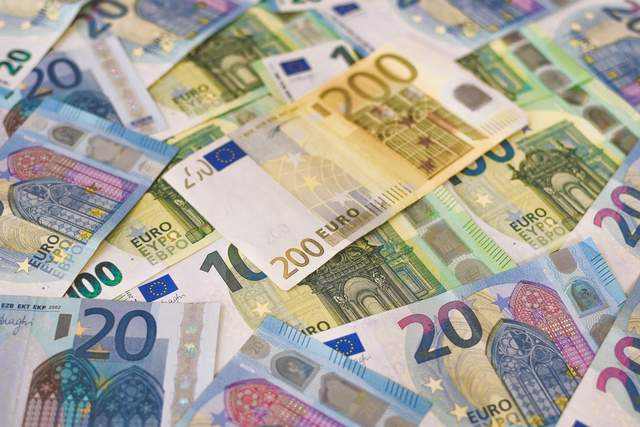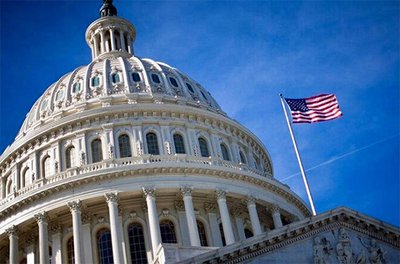
As the November 2024 US presidential election approaches, the global economy, especially Europe, is facing a new factor of instability. The radical economic policies proposed by US Republican presidential candidate Trump, especially his proposal to increase import tariffs, have attracted widespread attention and concern in the European market. This policy may not only have a profound impact on the US economy itself, but also potentially affect Europe and pose a threat to the economic stability of the eurozone.
Trump has repeatedly emphasized his role as the "Mr. Tariff" during his campaign and promised to impose high tariffs on all imported goods if elected. He firmly believes that by raising tariffs, the US manufacturing industry can be revitalized, employment opportunities can be increased, economic growth can be promoted, and trade deficits can be reduced. However, this policy proposal has sparked widespread controversy and concerns in the economic community and global markets.
From historical experience, Trump has implemented multiple trade protectionism policies during his first term, including imposing high tariffs on trading partners such as China. These policies not only failed to revitalize the US economy as Trump had hoped, but also triggered global trade tensions, intensified international trade frictions, and had a negative impact on the global economy. Now, if Trump is re elected and implements broader tariff policies, it will undoubtedly trigger a new global economic storm.
As an important trading partner of the United States, Europe's economy will undoubtedly be directly affected by Trump's tariff policies. Firstly, if Trump imposes high tariffs on all imported goods, the competitiveness of European goods in the US market will significantly decrease, leading to a reduction in European exports to the US and subsequently having a negative impact on European economic growth.
Secondly, Trump's tariff policies may trigger a reshuffling of the global trade chain. If the United States raises tariffs, other countries may take retaliatory measures, leading to further deterioration of the global trade environment. As an important part of the global economy, Europe's economic system will inevitably be impacted.
In addition, Trump's tariff policies may also have an impact on European financial markets. If the market's expectations of Trump's election increase, investors may worry about the escalation of global trade tensions, leading to a decrease in investment in the European market and a depreciation of the euro exchange rate.
Faced with the uncertainty and risks that Trump's tariff policies may bring, the European Central Bank needs to adopt an active response strategy. One is that the European Central Bank should closely monitor the development of the global trade situation and timely assess the impact of Trump's tariff policies on the eurozone economy. On this basis, the European Central Bank can adjust its monetary policy to cope with possible economic downturns and financial risks.
Secondly, the European Central Bank should strengthen communication and coordination with other major central banks. In the context of global economic integration, cooperation and coordination among central banks of various countries are crucial for maintaining global economic and financial stability. The European Central Bank can work with other major central banks to develop strategies to address Trump's tariff policies, in order to reduce the impact of policy uncertainty on the global economy and financial markets.
Thirdly, the European Central Bank can also strengthen supervision to ensure the stability and healthy development of the financial markets in the eurozone. Against the backdrop of potential market turbulence caused by Trump's tariff policies, the European Central Bank needs to strengthen its supervision of financial institutions to prevent excessive market volatility and systemic risks.
In addition to the European Central Bank, the EU also needs to take proactive measures to address the challenges that Trump's tariff policies may bring. The EU can strengthen communication and consultation with the United States, strive to resolve trade disputes through negotiations, and avoid the escalation of the trade war.
In today's increasingly interconnected global economy, the EU must strengthen cooperation with other countries and regions to jointly address the challenges brought by Trump's tariff policies. By strengthening international cooperation, the EU can expand its trading partner network, reduce dependence on the US market, mitigate the impact of Trump's tariff policies on the EU economy, and achieve sustainable economic development.

In early December, US stocks staged their most dramatic intraday reversal in months. Driven by the dual positive catalysts of chip giant NVIDIA's better-than-expected earnings report and a "Goldilocks" nonfarm payrolls report, the S&P 500 index surged as much as 1.9% within the first hour of trading.
In early December, US stocks staged their most dramatic int…
On December 5, 2025, the European Union fined Musk's social…
Since October 2025, there has been a week of intense fighti…
On the global economic stage of 2025, the U.S. economy is s…
Recently, the head of Apple's artificial intelligence and t…
On December 5, 2025, the Office of the Compilers of the Cur…